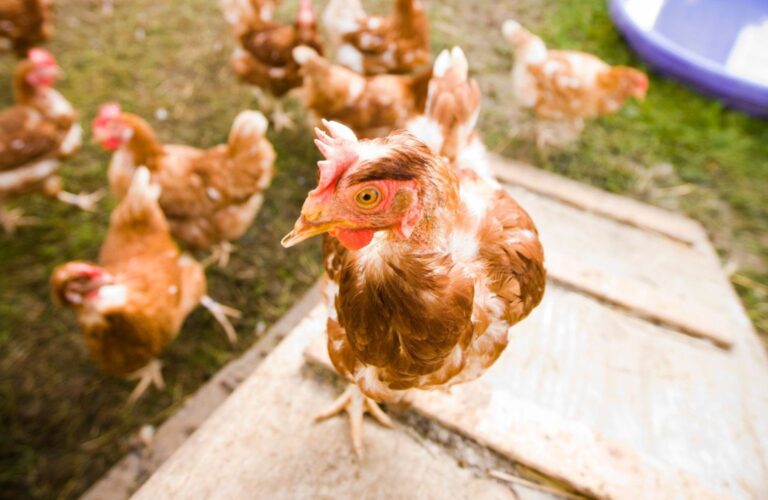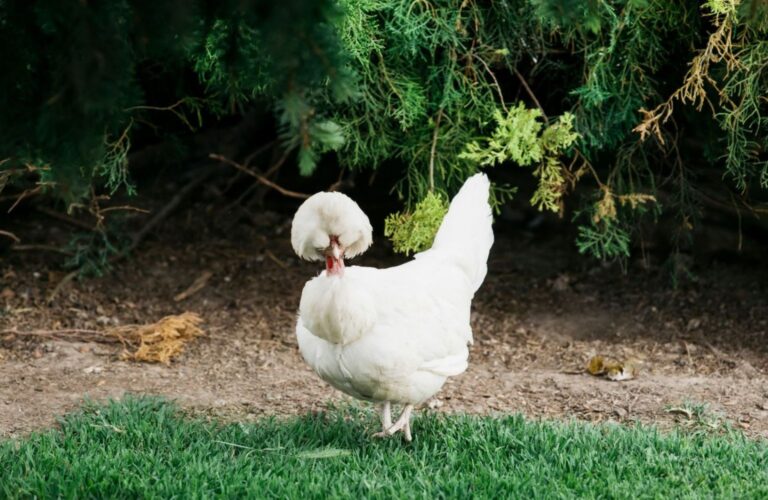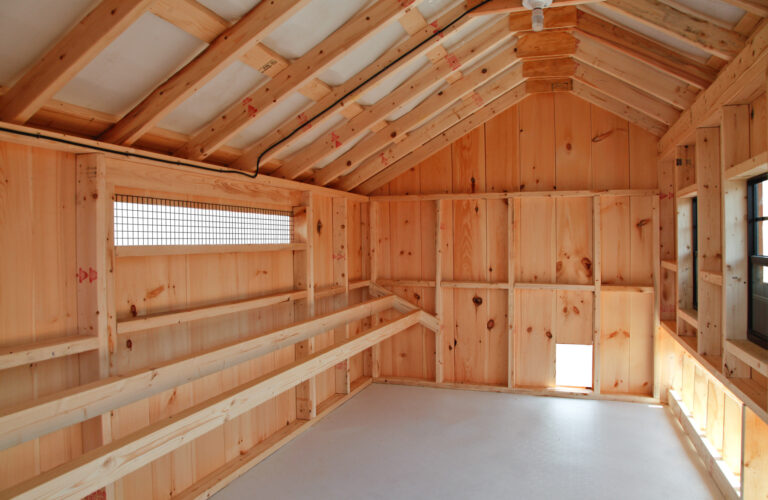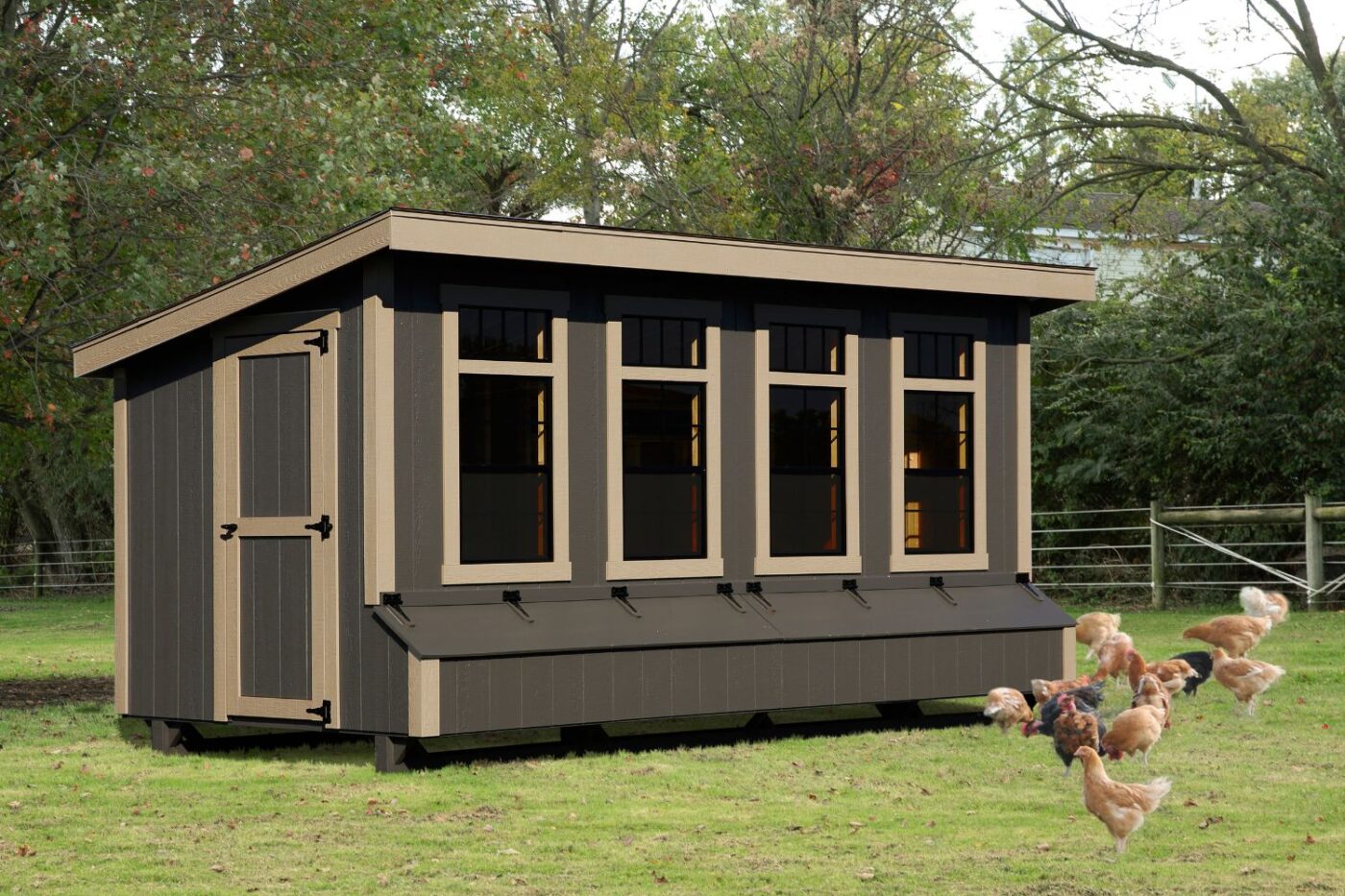
Need a new coop for your backyard flock in Vermont? Check out our prefab chicken coops, and let us help you customize just the one for you. Our chicken coops come in large sizes, so you can find the perfect coop size for your flock. We also can customize your coop by color, materials, interior features, and style. The options are truly endless! Find the perfect chicken coops for sale in Essex VT, today!
If you have had bad luck finding the ideal coop for your feathered friends, we are here to help you. The Hen House Collection is based out of Lancaster, Pennsylvania, but sells and delivers coops nationwide via our network of dealers. Though we do not have any dealers in your area, depending on your exact location, there may be one within range. To find the nearest dealer to your location, simply click the button below and enter your address. If there are no dealers close to you, no worries! You can work directly with us!
Our Chicken Coop Styles
The Combination Coop
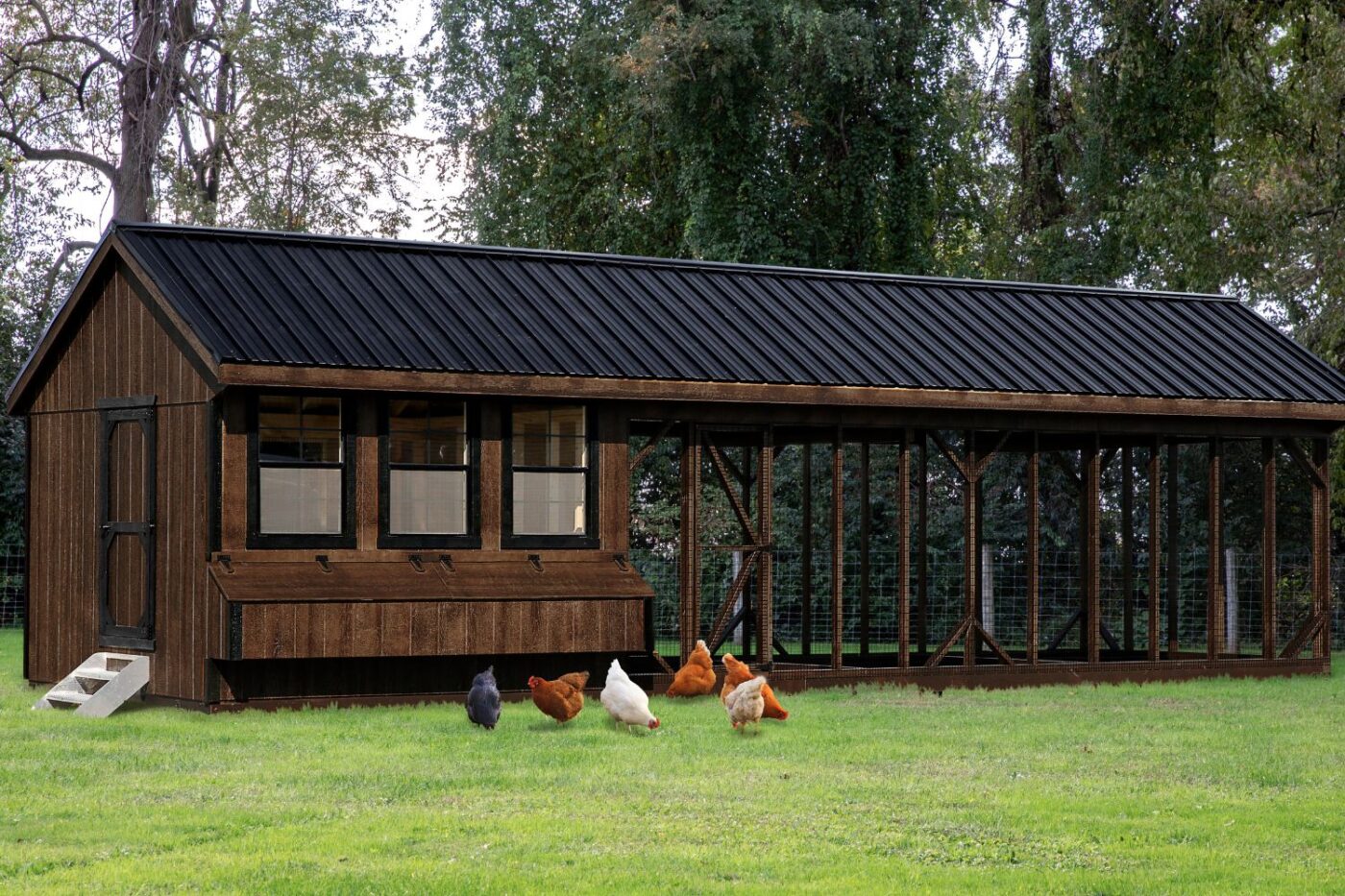
Our best-seller, the Combination Coop, comes equipped with an attached run to give your chickens the additional space they need.
The Quaker Coop
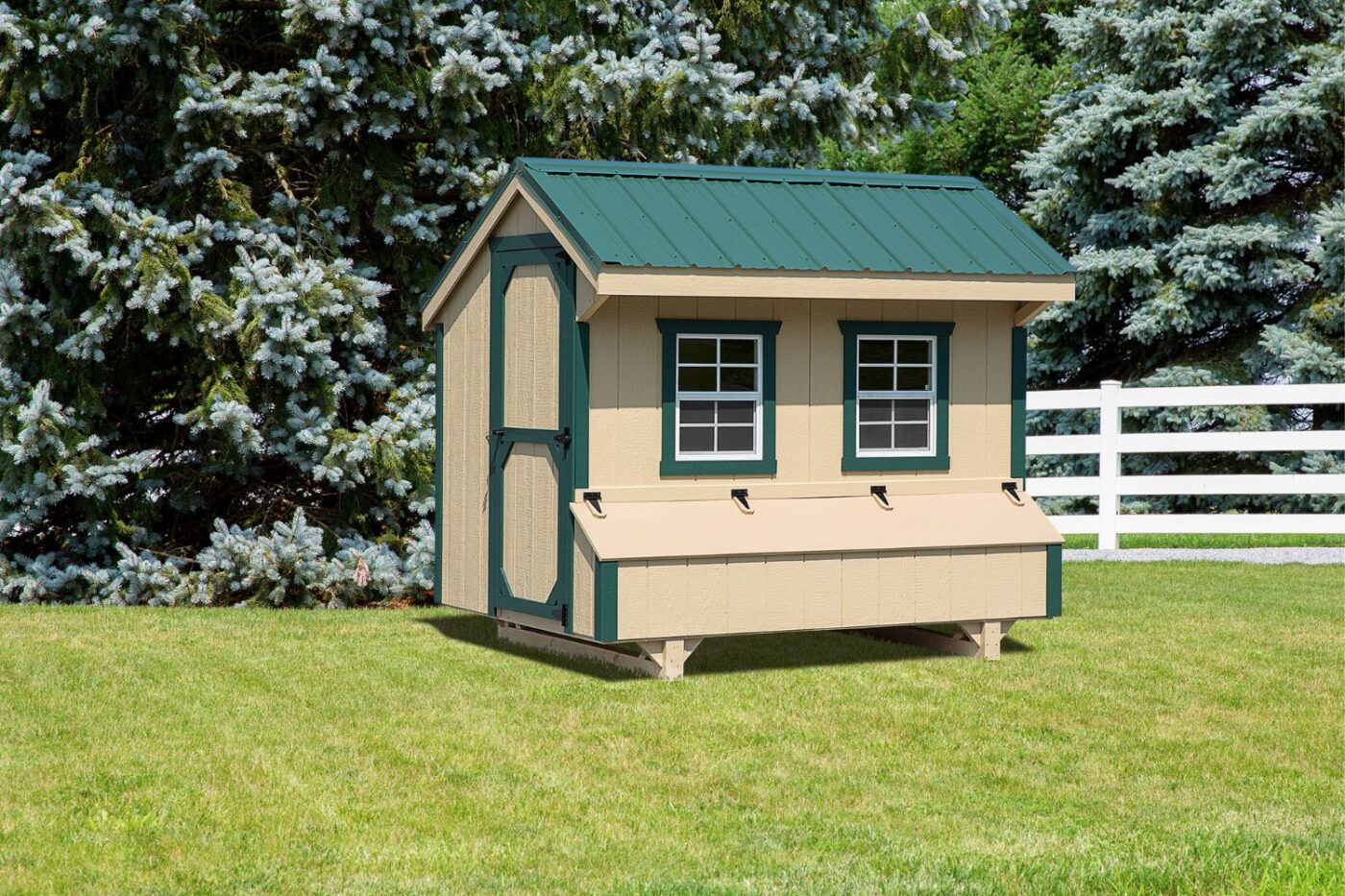
A charming coop with a slight roof overhang, the Quaker is a great option for backyard hens and has all the needed features.
The Tractor Coop
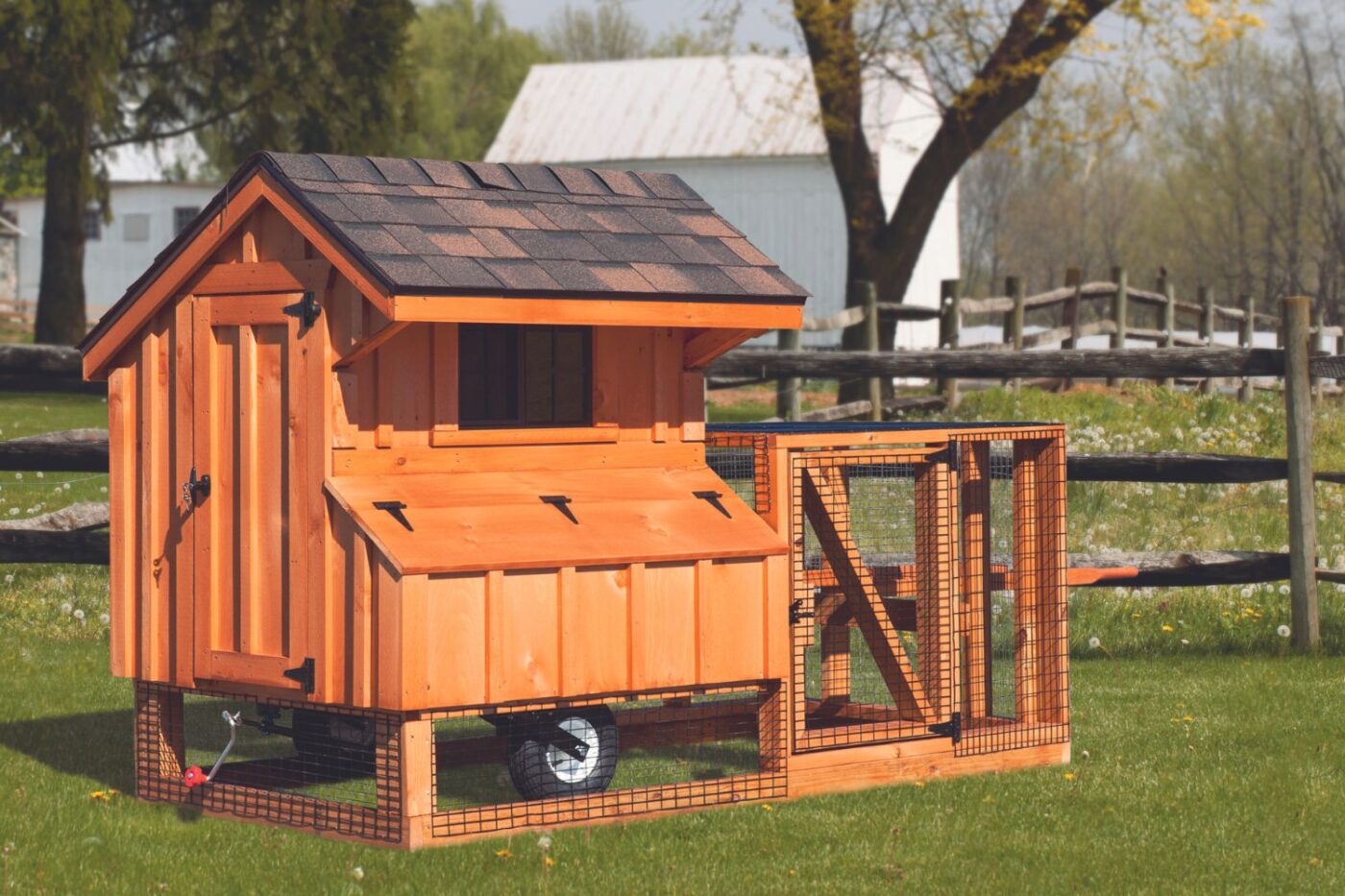
Want to be able to move the coop from place to place? The Tractor Coop is a wonderful portable option for smaller flocks.
The A-Frame Coop
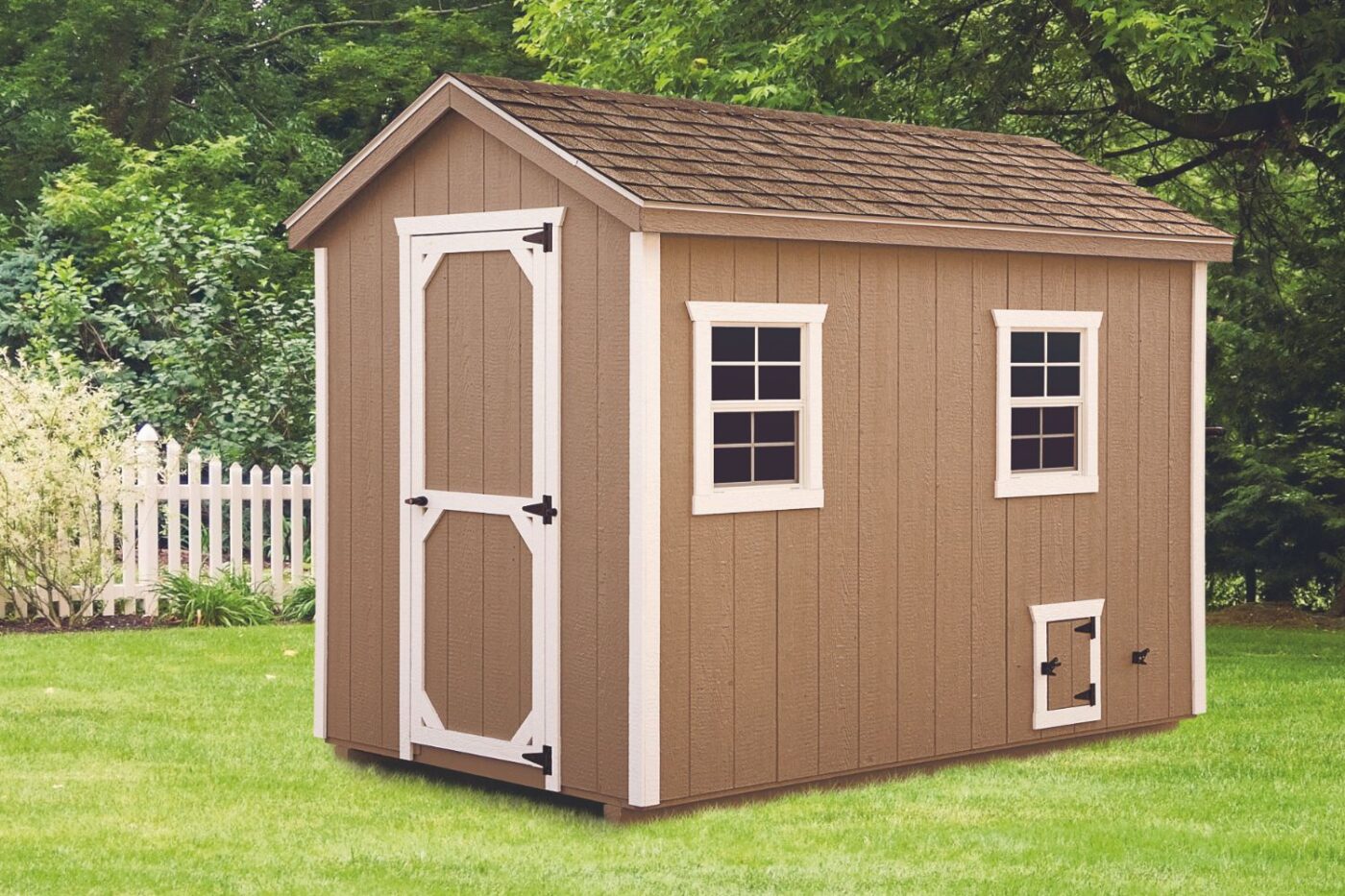
A standard coop with a peaked roof, the A-Frame is a great coop for any number of chickens. We even offer a size for 100 hens!
The Dutch Coop
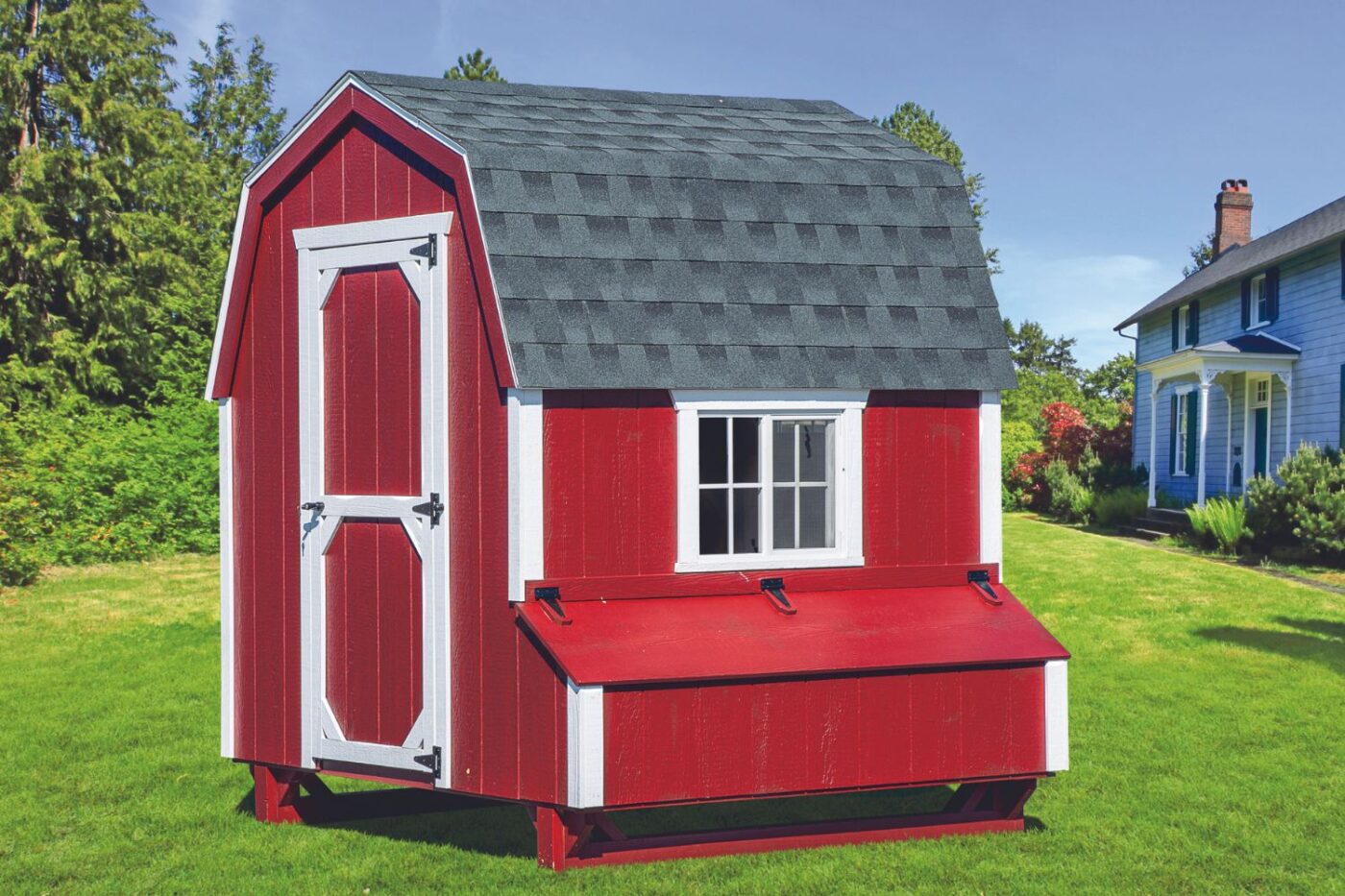
This barn-style coop is a cute coop for your backyard and can be fully customized. Take a look at our Dutch Chicken Coop options today.
The Lean-to Coop
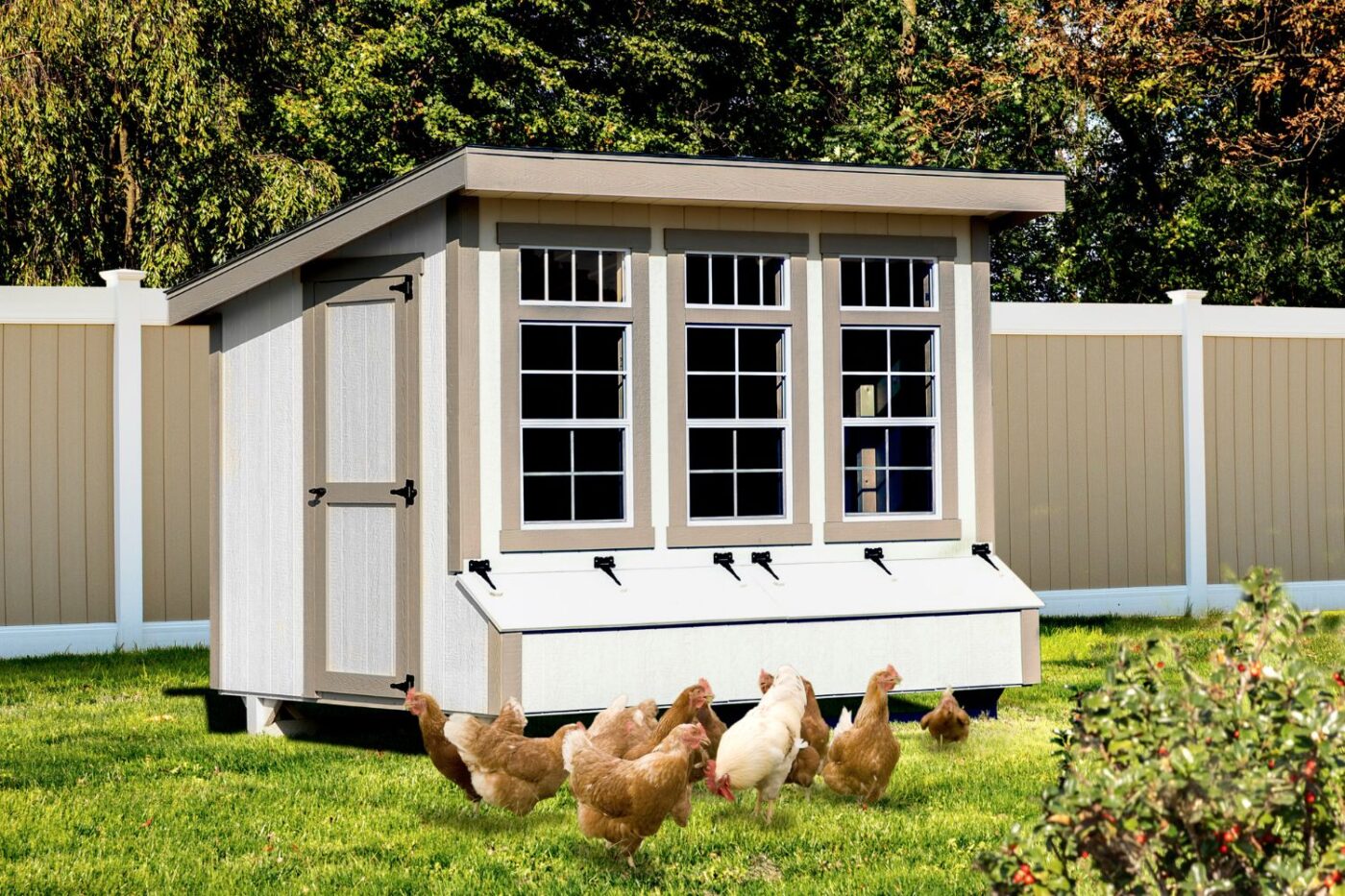
A stunning coop with large windows for great ventilation, the Lean-to Coop is a beautiful backyard coop that can be leaned against your fence.
Regulations for Chicken Coops in Essex
In the city of Essex, Vermont, residents can keep up to 6 female chickens on their property with a use permit. Roosters are not allowed in residential areas.
Chickens should remain within an enclosure like a henhouse, chicken tractor, or fenced area throughout daylight hours. These enclosures must be kept clean, dry, and free of odors, consistently maintaining a tidy and sanitary state. It’s important to manage them in a way that doesn’t disrupt neighboring properties with noise, odors, or other negative impacts on their use or enjoyment.
You’re allowed to use portable enclosures, but they must not be placed within the designated property line setbacks. Ensure you’re mindful of where you position them on your property.
Coop Size and Placement
Enclosures must not exceed 50 square feet in size, but they can be situated within a larger structure if preferred.
Henhouses, enclosures, and chicken tractors are not permitted in the front yard of any property, including corner lots. They should instead be placed in the backyard or other designated areas suitable for them.
Sanitation and Maintenance
Taking good care of chicken coops is crucial to avoid health issues and bothersome problems like bad smells or pests. Make sure to keep the coops clean, dry, and well-ventilated.
Health and Safety Regulations
People who own backyard chickens need to follow health and safety rules, including those about selling eggs or meat.
Check out this page to learn more about chicken coop regulations in Vermont.
Chicken Coop Stories
Learn about Dorothy’s experience from Rhode Island as she discusses how The Hen House Collection’s chicken coop has made a positive difference in her hens’ lives.
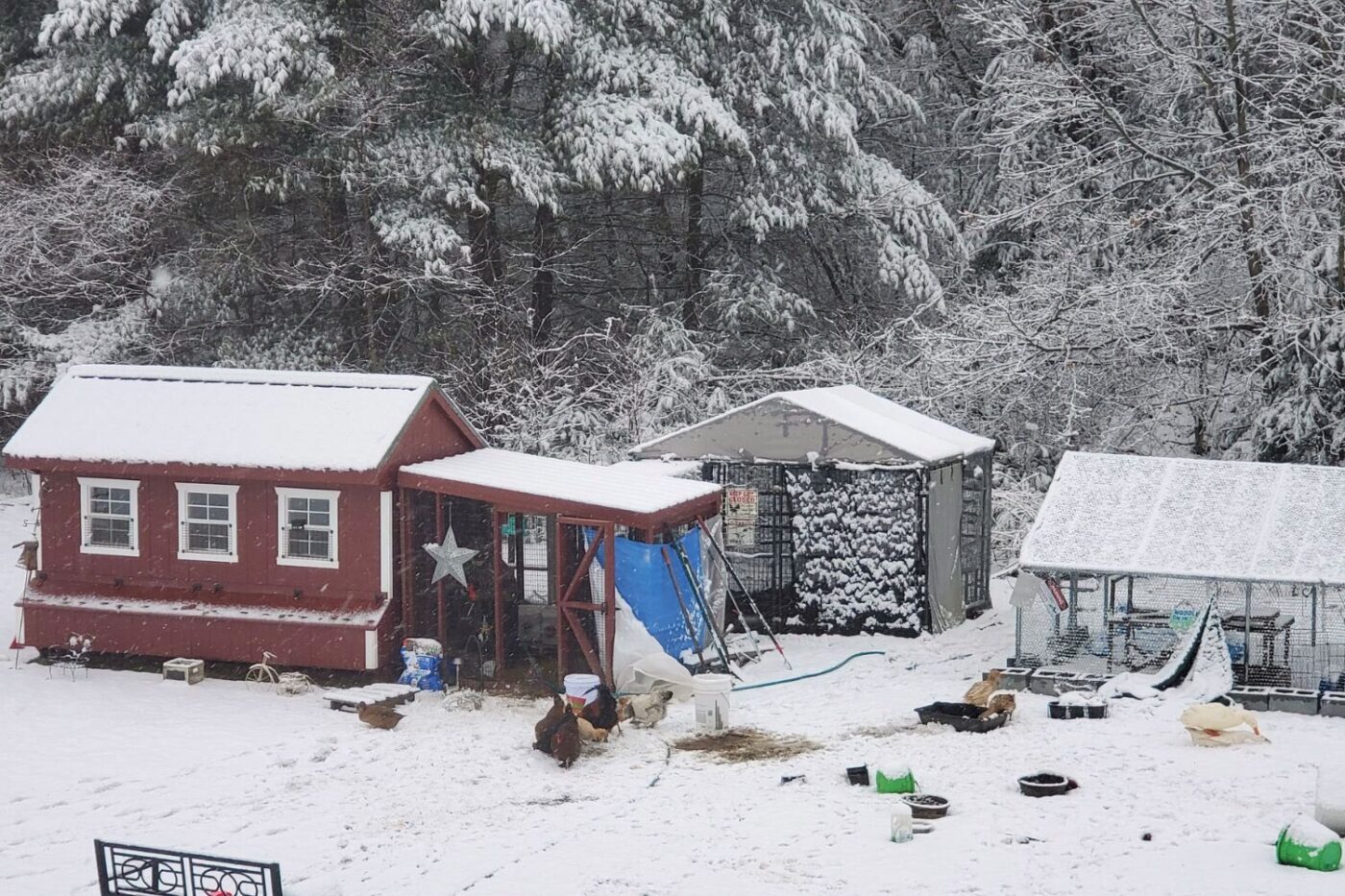
Chicken Coops for Sale in Essex VT: Commonly Asked Questions
What breed of chickens are best suited for backyard environments?
If you’re considering growing your flock, you’ll find numerous chicken breeds to select from. Popular options include Rhode Island Reds, Silkies, Sussex, Orpingtons, Brahmas, and more. For further details on which breeds could be the right fit for you, take a look at our blog post about the Friendliest Chicken Breeds.
How do I protect my chickens from predators?
Many chicken farmers often make mistakes when it comes to protecting their chickens from predators. One common error is building coops that aren’t sturdy enough, especially in areas where predators are common.
In places like Vermont, predators such as raccoons, coyotes, foxes, weasels, and even domestic dogs can easily break into coops made with weak wire and flimsy wood. If you know there are predators around, avoid using chicken wire and instead opt for stronger materials for your coop. Ensure your doors have strong latches, and properly seal your windows to keep predators out.
What should I feed my chickens, and how much?
Besides their regular layer feed, chickens can also thrive on nutritious greens like lettuce, kale, and turnip greens. They might also relish occasional treats such as watermelon, strawberries, and blueberries, but it’s important not to overdo it.
On average, a laying hen eats about a quarter pound of feed daily, up to roughly a pound and a half per week. However, this quantity can vary depending on the size or breed of your chickens.
Other Cities We Serve in Vermont
Burlington
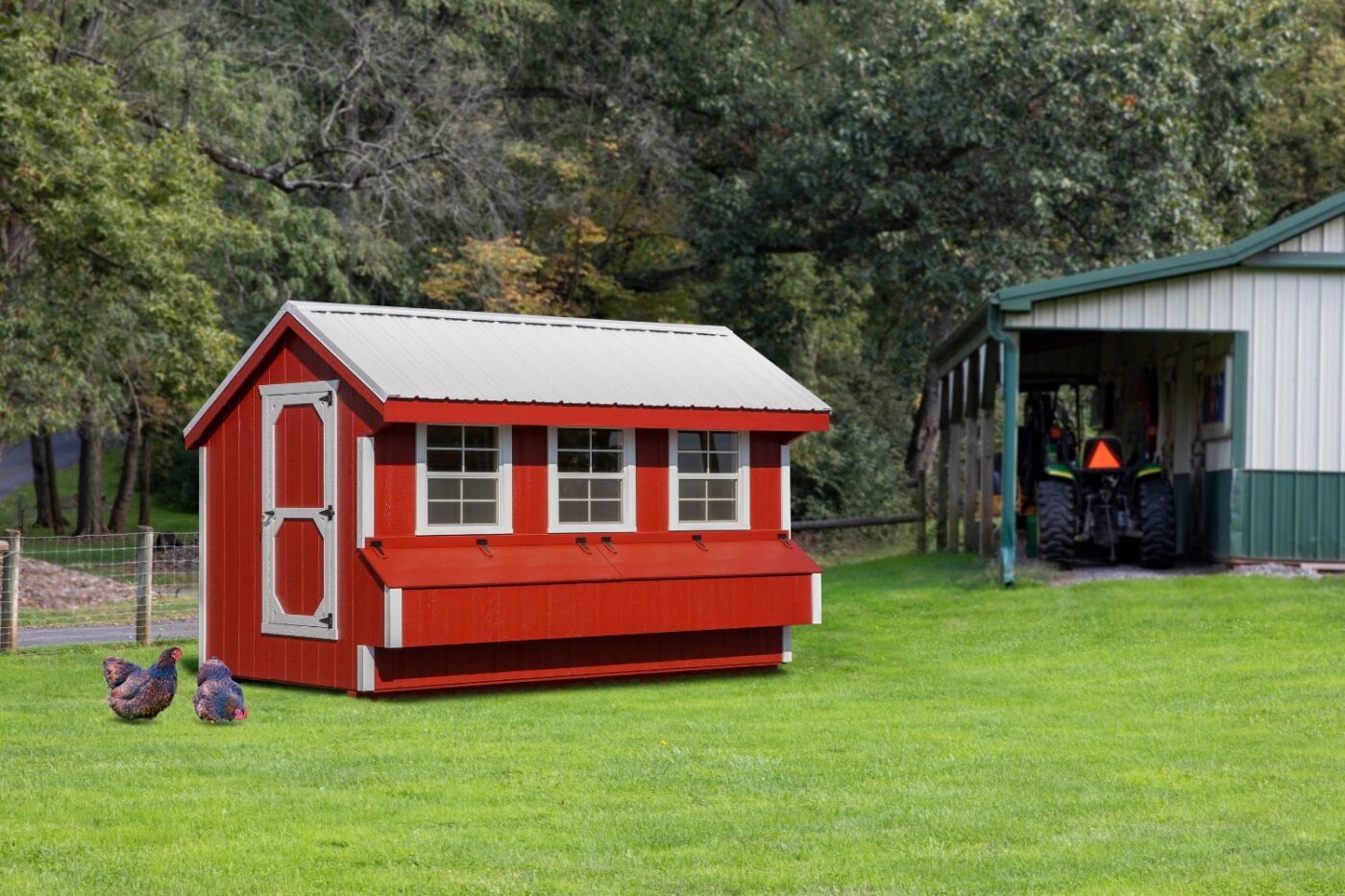
Are you stationed in the Burlington area and looking for a new chicken coop for your flock? Check out our coop options and find just the one you need!
Colchester
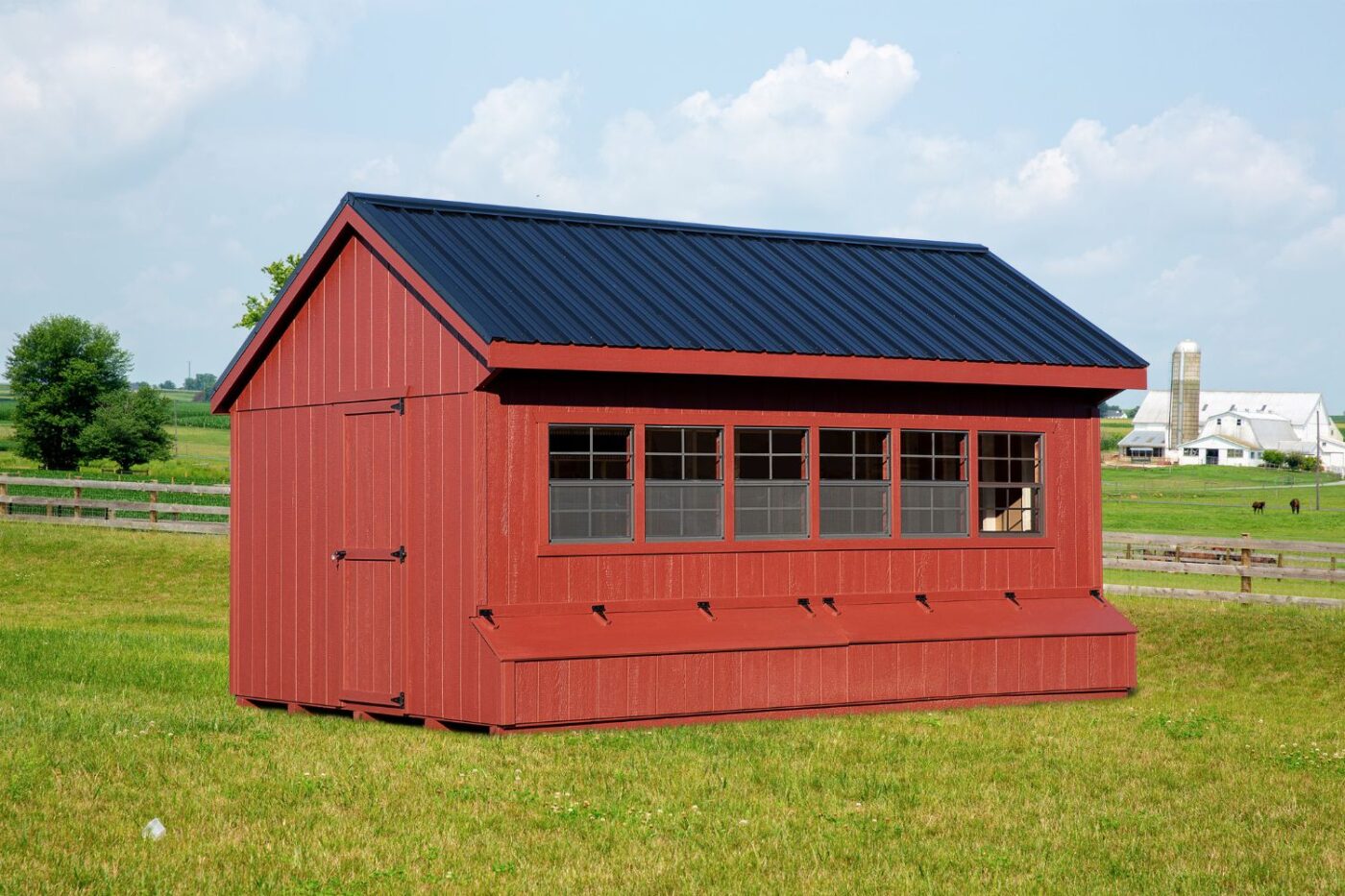
Living in Colchester VT, and on the lookout for a new coop? We have just the one for you! Choose the coop you need and Customize it to fit the needs of your flock.

